Spotlight
A selection of stories from across the Federation

Romania
Roma Women in Romania Face Old and New Threats to Abortion Care Access
Roma women and girls face multiple barriers to abortion care in Romania. Far more needs to be done to protect their rights, says Roxana-Magdalena Oprea of E-Romnja.
Most Popular This Week
Romania

Roma Women in Romania Face Old and New Threats to Abortion Care Access
For Roma women and girls in Romania, the struggle to access abortion care brings them into contact with horrific levels of racism and discrimination, hardw
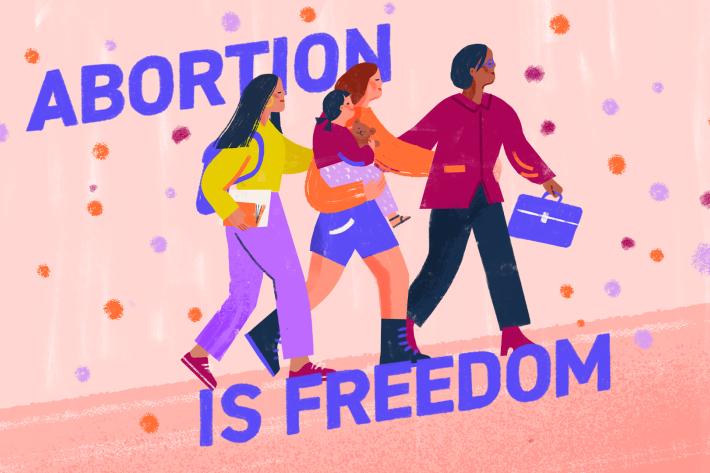
Croatia: Obstacles to abortion care make access virtually non-existent
Hitting the road in the desperate search for abortion care
Romania
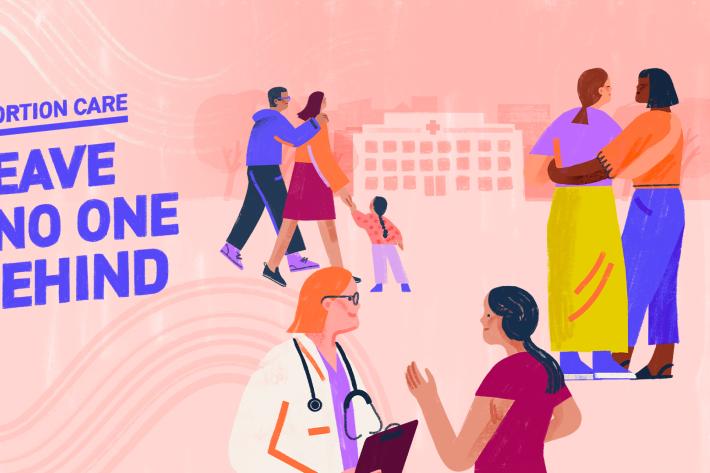
High costs and broken health system freeze many out of abortion care in Romania
On paper, abortion care is legal up to 14 weeks in Romania – though only free in emergencies – and should be provided by all hospitals with obstetrics and gynaecology departments.
Germany
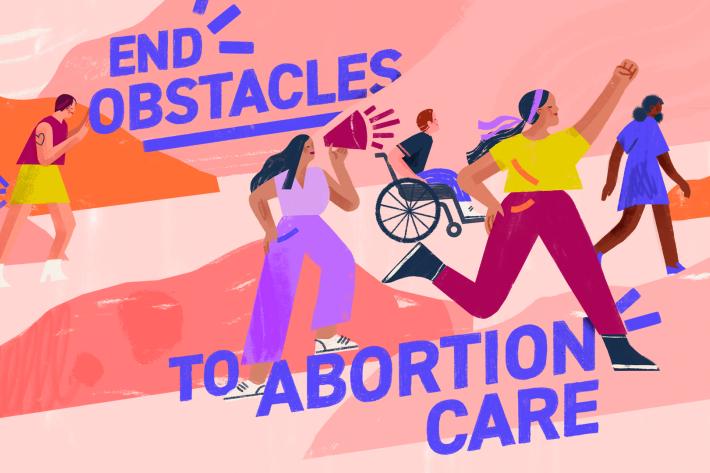
Germany's archaic abortion law creates huge burden for people needing care
For a country long reputed to have one of the more progressive healthcare systems in Europe, Germany’s law on abortion – a health issue affecting millions of people – remains firm

Sexuality education keeps young people safe from harm
Comprehensive sexuality and relationship education is a vital prevention tool in the fight
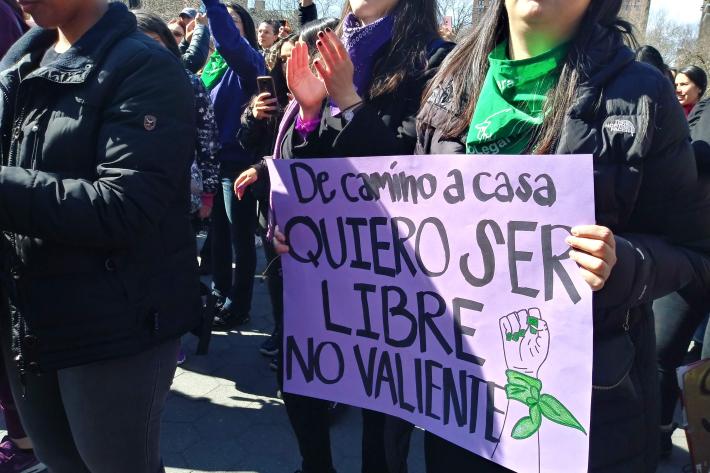
Legislating the path to consent: Spain's Yes Means Yes law
‘Everyone has the right to live without violence. You can have sex without love, but always with care’.
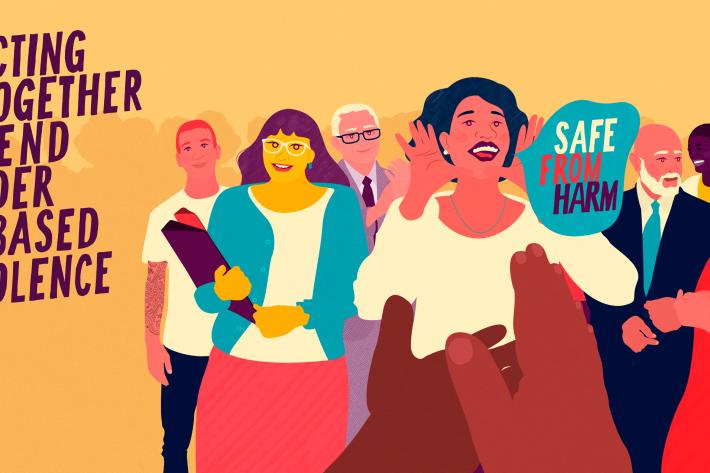
Anything less than yes is rape: the campaign for a consent-based rape law in Sweden
The absence of a ‘no’ is not an implicit yes. This is the overarching principle of a long-fought Swedish ‘consent law’ aimed at disman
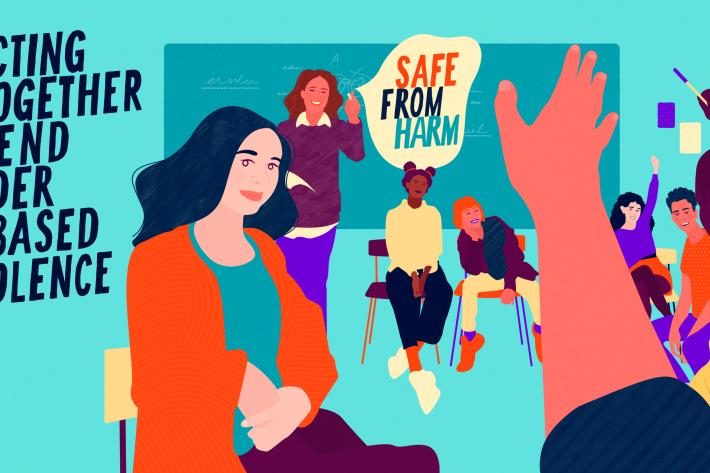
Belgium’s consent law is clear: Absence of no doesn’t mean yes
‘Rape isn’t always something that happens when you are dragged into an alleyway’, says Heleen Heysse, Policy Officer at
Filter our stories by:


| 21 December 2023
Being an ally for sex workers' rights in France
We can only achieve equal societies and access to sexual and reproductive health and rights for all if we ensure that sex workers are included. This has been the stance since 2012 of IPPF's French member, Le Planning Familial. Since then, the organisation has been defending sex workers’ rights and access to health, including the right to autonomy and bodily integrity and the right to work and live free from violence and discrimination. It describes itself as an ally, listening to and supporting sex worker organisations and adding its voice to calls for decriminalisation as the only way to respect human rights. Since the introduction of the Nordic Model in France in 2016, which criminalised the purchase of sex, reports of violence against sex workers have almost doubled. Criminalisation of clients has had a detrimental impact on the lives and safety of people who do sex work. Mel Noat from Le Planning Familial acknowledged that even now there is confusion about the law: “It is not illegal to be a sex worker but because clients have been criminalised, sex workers can’t work. Police often fine sex workers despite it being legal.” Because of criminalisation, clients want to avoid being fined, which in turn pushes sex workers underground into dangerous situations. With the current legal framework, they are more exposed to violent exploitation, precarious working conditions and are involved in high-risk behaviour just to earn basic wages. Mel said: “People work in dark places, without anyone around to witness violence from clients like stealing money, physical and sexual abuse, sometimes even murder. Sex workers have no choice over their customers, no choice of working hours, and no customer screening.” He added that sex workers face negotiating difficulties due to dwindling clientele. This, she argues, makes it harder to enforce the basics of sexual risk reduction like condom use. Whether it comes to access to healthcare, exposure to violence, discrimination and stigma, or financial insecurity, the harms of the 2016 law have been far greater for groups experiencing intersecting forms of exclusion, such as migrant and trans sex workers. How the current law creates obstacles to protecting sex workers’ health and rights As a result of the 2016 law, sex workers are moving away from the traditional spaces where they would find and meet clients. Sometimes they have to venture to hidden places, such as apartments, which jeopardises their safety, as they are more isolated if subjected to violence or if a client refuses to pay. Many turn to intermediaries (pimps or sex websites) and end up paying back part of their income, which makes their situation even more precarious and reduces their autonomy over their work. Sex workers are often pushed into homelessness as they are forced to travel to different cities every few weeks to look for clients, now that these are more difficult to find. This affects their health and welfare as, for example, they don’t know where the closest hospital is, or where they can find condoms or information centres. People are also working more online, due to both the law change and the subsequent COVID-19 crisis. This reduces contacts with the community associations supporting sex workers’ rights, making it more difficult to provide information about healthcare and support. Sex workers are highly stigmatised and often face discrimination by medical staff. They find it difficult to talk about the reality of their work for fear of being judged, or for those who are undocumented, being reported to the authorities. However, there are spaces where sex workers can access healthcare. Some branches of Le Planning Familial are supporting people engaged in sex work through outreach and service delivery. In one region they undertake night patrols, offer condoms and rapid diagnostic tests and provide education on sexual and reproductive health. Elsewhere, the organisation collaborates with STRASS, the sex workers’ union, which provides peer-to-peer services in some of Le Planning’s clinics, as community-led services are proven to be one of the most effective way to deliver care to a key population group like sex workers. The ‘exit programme’ is limiting and tokenistic The French government wrongly conflates sex work with human trafficking and has done little to review the impact that the legislation has had on sex workers. On the contrary, they are planning to implement a national strategy against human trafficking, which wrongly includes sex work. Measures in the 2016 law that are intended to provide a ‘pathway out of prostitution’ are not adapted to the realities and needs of sex workers. The allowance provided as part of this pathway is a measly €343 a month (three times lower than the French poverty line, which is €1,102). People can be granted a provisional residence permit, but only for six months, which makes it difficult for them to access accommodation, particularly social housing, as landlords often require longer residence permits. On top of this, professional opportunities are severely limited and tend to be in precarious sectors such as in cleaning or the hotel trade. The committee that is supposed to monitor the implementation of the law has only met twice in seven years and only those associations promoting the 2016 law were invited to the table, while sex worker-led community associations were excluded from the process. It is shocking that the government has refused to listen to the voices of the people concerned by the legislation, and to organisations that denounce its negative effects. Partnerships for sex workers’ SRHR in the face of backlash The data is unambiguous: where sex work is criminalised, sex workers are at a much higher risk of violence. Yet, many pro-decriminalisation organisations face intense backlash, not only from conservative, anti-rights groups but also from well-intentioned organisations that claim to want to protect sex workers. This hostility can pose a challenge to advocacy efforts. To help overcome this challenge and speak with one common, stronger voice, Le Planning Familial has formed alliances with like-minded organisations. In conjunction with Médecins du Monde, Act Up-Paris and AIDES, it co-signed an alternative report in the context of the review of France’s implementation of the Convention on the Elimination of All Forms of Discrimination Against Women (CEDAW). This explained that the 2016 French law criminalising clients negatively impacts sex workers and is counterproductive. The organisation also widely shared and supported a European Court of Human Rights preliminary decision in August 2023, which recognised the admissibility of complaints by sex workers, confirming that the mere existence of the French law has harmful consequences for them. Mel said: “We do not support the criminalisation or regulation of any aspect of sex work. Le Planning Familial acts and fights to help build an egalitarian society, free from commodification and violence. We are firmly opposed to human trafficking, violence, rape, pimping and slavery. We believe everyone has the right to autonomy and bodily integrity, the right to work and to live free from violence and discrimination. We support everyone's right to make their own choices through informed consent.” *** Mel Noat is the focal point for issues relating to sex work in the Board of Le Planning Familial. Read more about IPPF’s global policy position on sex work, which strongly supports decriminalisation of all aspects of sex work, together with social policies that address structural inequalities, as the only way to protect the health, safety and lives of those who do sex work. Photo by Loïc Fürhoff on Unsplash

| 01 March 2024
Being an ally for sex workers' rights in France
We can only achieve equal societies and access to sexual and reproductive health and rights for all if we ensure that sex workers are included. This has been the stance since 2012 of IPPF's French member, Le Planning Familial. Since then, the organisation has been defending sex workers’ rights and access to health, including the right to autonomy and bodily integrity and the right to work and live free from violence and discrimination. It describes itself as an ally, listening to and supporting sex worker organisations and adding its voice to calls for decriminalisation as the only way to respect human rights. Since the introduction of the Nordic Model in France in 2016, which criminalised the purchase of sex, reports of violence against sex workers have almost doubled. Criminalisation of clients has had a detrimental impact on the lives and safety of people who do sex work. Mel Noat from Le Planning Familial acknowledged that even now there is confusion about the law: “It is not illegal to be a sex worker but because clients have been criminalised, sex workers can’t work. Police often fine sex workers despite it being legal.” Because of criminalisation, clients want to avoid being fined, which in turn pushes sex workers underground into dangerous situations. With the current legal framework, they are more exposed to violent exploitation, precarious working conditions and are involved in high-risk behaviour just to earn basic wages. Mel said: “People work in dark places, without anyone around to witness violence from clients like stealing money, physical and sexual abuse, sometimes even murder. Sex workers have no choice over their customers, no choice of working hours, and no customer screening.” He added that sex workers face negotiating difficulties due to dwindling clientele. This, she argues, makes it harder to enforce the basics of sexual risk reduction like condom use. Whether it comes to access to healthcare, exposure to violence, discrimination and stigma, or financial insecurity, the harms of the 2016 law have been far greater for groups experiencing intersecting forms of exclusion, such as migrant and trans sex workers. How the current law creates obstacles to protecting sex workers’ health and rights As a result of the 2016 law, sex workers are moving away from the traditional spaces where they would find and meet clients. Sometimes they have to venture to hidden places, such as apartments, which jeopardises their safety, as they are more isolated if subjected to violence or if a client refuses to pay. Many turn to intermediaries (pimps or sex websites) and end up paying back part of their income, which makes their situation even more precarious and reduces their autonomy over their work. Sex workers are often pushed into homelessness as they are forced to travel to different cities every few weeks to look for clients, now that these are more difficult to find. This affects their health and welfare as, for example, they don’t know where the closest hospital is, or where they can find condoms or information centres. People are also working more online, due to both the law change and the subsequent COVID-19 crisis. This reduces contacts with the community associations supporting sex workers’ rights, making it more difficult to provide information about healthcare and support. Sex workers are highly stigmatised and often face discrimination by medical staff. They find it difficult to talk about the reality of their work for fear of being judged, or for those who are undocumented, being reported to the authorities. However, there are spaces where sex workers can access healthcare. Some branches of Le Planning Familial are supporting people engaged in sex work through outreach and service delivery. In one region they undertake night patrols, offer condoms and rapid diagnostic tests and provide education on sexual and reproductive health. Elsewhere, the organisation collaborates with STRASS, the sex workers’ union, which provides peer-to-peer services in some of Le Planning’s clinics, as community-led services are proven to be one of the most effective way to deliver care to a key population group like sex workers. The ‘exit programme’ is limiting and tokenistic The French government wrongly conflates sex work with human trafficking and has done little to review the impact that the legislation has had on sex workers. On the contrary, they are planning to implement a national strategy against human trafficking, which wrongly includes sex work. Measures in the 2016 law that are intended to provide a ‘pathway out of prostitution’ are not adapted to the realities and needs of sex workers. The allowance provided as part of this pathway is a measly €343 a month (three times lower than the French poverty line, which is €1,102). People can be granted a provisional residence permit, but only for six months, which makes it difficult for them to access accommodation, particularly social housing, as landlords often require longer residence permits. On top of this, professional opportunities are severely limited and tend to be in precarious sectors such as in cleaning or the hotel trade. The committee that is supposed to monitor the implementation of the law has only met twice in seven years and only those associations promoting the 2016 law were invited to the table, while sex worker-led community associations were excluded from the process. It is shocking that the government has refused to listen to the voices of the people concerned by the legislation, and to organisations that denounce its negative effects. Partnerships for sex workers’ SRHR in the face of backlash The data is unambiguous: where sex work is criminalised, sex workers are at a much higher risk of violence. Yet, many pro-decriminalisation organisations face intense backlash, not only from conservative, anti-rights groups but also from well-intentioned organisations that claim to want to protect sex workers. This hostility can pose a challenge to advocacy efforts. To help overcome this challenge and speak with one common, stronger voice, Le Planning Familial has formed alliances with like-minded organisations. In conjunction with Médecins du Monde, Act Up-Paris and AIDES, it co-signed an alternative report in the context of the review of France’s implementation of the Convention on the Elimination of All Forms of Discrimination Against Women (CEDAW). This explained that the 2016 French law criminalising clients negatively impacts sex workers and is counterproductive. The organisation also widely shared and supported a European Court of Human Rights preliminary decision in August 2023, which recognised the admissibility of complaints by sex workers, confirming that the mere existence of the French law has harmful consequences for them. Mel said: “We do not support the criminalisation or regulation of any aspect of sex work. Le Planning Familial acts and fights to help build an egalitarian society, free from commodification and violence. We are firmly opposed to human trafficking, violence, rape, pimping and slavery. We believe everyone has the right to autonomy and bodily integrity, the right to work and to live free from violence and discrimination. We support everyone's right to make their own choices through informed consent.” *** Mel Noat is the focal point for issues relating to sex work in the Board of Le Planning Familial. Read more about IPPF’s global policy position on sex work, which strongly supports decriminalisation of all aspects of sex work, together with social policies that address structural inequalities, as the only way to protect the health, safety and lives of those who do sex work. Photo by Loïc Fürhoff on Unsplash

| 21 December 2023
Being an ally for sex workers' rights in France
We can only achieve equal societies and access to sexual and reproductive health and rights for all if we ensure that sex workers are included. This has been the stance since 2012 of IPPF's French member, Le Planning Familial. Since then, the organisation has been defending sex workers’ rights and access to health, including the right to autonomy and bodily integrity and the right to work and live free from violence and discrimination. It describes itself as an ally, listening to and supporting sex worker organisations and adding its voice to calls for decriminalisation as the only way to respect human rights. Since the introduction of the Nordic Model in France in 2016, which criminalised the purchase of sex, reports of violence against sex workers have almost doubled. Criminalisation of clients has had a detrimental impact on the lives and safety of people who do sex work. Mel Noat from Le Planning Familial acknowledged that even now there is confusion about the law: “It is not illegal to be a sex worker but because clients have been criminalised, sex workers can’t work. Police often fine sex workers despite it being legal.” Because of criminalisation, clients want to avoid being fined, which in turn pushes sex workers underground into dangerous situations. With the current legal framework, they are more exposed to violent exploitation, precarious working conditions and are involved in high-risk behaviour just to earn basic wages. Mel said: “People work in dark places, without anyone around to witness violence from clients like stealing money, physical and sexual abuse, sometimes even murder. Sex workers have no choice over their customers, no choice of working hours, and no customer screening.” He added that sex workers face negotiating difficulties due to dwindling clientele. This, she argues, makes it harder to enforce the basics of sexual risk reduction like condom use. Whether it comes to access to healthcare, exposure to violence, discrimination and stigma, or financial insecurity, the harms of the 2016 law have been far greater for groups experiencing intersecting forms of exclusion, such as migrant and trans sex workers. How the current law creates obstacles to protecting sex workers’ health and rights As a result of the 2016 law, sex workers are moving away from the traditional spaces where they would find and meet clients. Sometimes they have to venture to hidden places, such as apartments, which jeopardises their safety, as they are more isolated if subjected to violence or if a client refuses to pay. Many turn to intermediaries (pimps or sex websites) and end up paying back part of their income, which makes their situation even more precarious and reduces their autonomy over their work. Sex workers are often pushed into homelessness as they are forced to travel to different cities every few weeks to look for clients, now that these are more difficult to find. This affects their health and welfare as, for example, they don’t know where the closest hospital is, or where they can find condoms or information centres. People are also working more online, due to both the law change and the subsequent COVID-19 crisis. This reduces contacts with the community associations supporting sex workers’ rights, making it more difficult to provide information about healthcare and support. Sex workers are highly stigmatised and often face discrimination by medical staff. They find it difficult to talk about the reality of their work for fear of being judged, or for those who are undocumented, being reported to the authorities. However, there are spaces where sex workers can access healthcare. Some branches of Le Planning Familial are supporting people engaged in sex work through outreach and service delivery. In one region they undertake night patrols, offer condoms and rapid diagnostic tests and provide education on sexual and reproductive health. Elsewhere, the organisation collaborates with STRASS, the sex workers’ union, which provides peer-to-peer services in some of Le Planning’s clinics, as community-led services are proven to be one of the most effective way to deliver care to a key population group like sex workers. The ‘exit programme’ is limiting and tokenistic The French government wrongly conflates sex work with human trafficking and has done little to review the impact that the legislation has had on sex workers. On the contrary, they are planning to implement a national strategy against human trafficking, which wrongly includes sex work. Measures in the 2016 law that are intended to provide a ‘pathway out of prostitution’ are not adapted to the realities and needs of sex workers. The allowance provided as part of this pathway is a measly €343 a month (three times lower than the French poverty line, which is €1,102). People can be granted a provisional residence permit, but only for six months, which makes it difficult for them to access accommodation, particularly social housing, as landlords often require longer residence permits. On top of this, professional opportunities are severely limited and tend to be in precarious sectors such as in cleaning or the hotel trade. The committee that is supposed to monitor the implementation of the law has only met twice in seven years and only those associations promoting the 2016 law were invited to the table, while sex worker-led community associations were excluded from the process. It is shocking that the government has refused to listen to the voices of the people concerned by the legislation, and to organisations that denounce its negative effects. Partnerships for sex workers’ SRHR in the face of backlash The data is unambiguous: where sex work is criminalised, sex workers are at a much higher risk of violence. Yet, many pro-decriminalisation organisations face intense backlash, not only from conservative, anti-rights groups but also from well-intentioned organisations that claim to want to protect sex workers. This hostility can pose a challenge to advocacy efforts. To help overcome this challenge and speak with one common, stronger voice, Le Planning Familial has formed alliances with like-minded organisations. In conjunction with Médecins du Monde, Act Up-Paris and AIDES, it co-signed an alternative report in the context of the review of France’s implementation of the Convention on the Elimination of All Forms of Discrimination Against Women (CEDAW). This explained that the 2016 French law criminalising clients negatively impacts sex workers and is counterproductive. The organisation also widely shared and supported a European Court of Human Rights preliminary decision in August 2023, which recognised the admissibility of complaints by sex workers, confirming that the mere existence of the French law has harmful consequences for them. Mel said: “We do not support the criminalisation or regulation of any aspect of sex work. Le Planning Familial acts and fights to help build an egalitarian society, free from commodification and violence. We are firmly opposed to human trafficking, violence, rape, pimping and slavery. We believe everyone has the right to autonomy and bodily integrity, the right to work and to live free from violence and discrimination. We support everyone's right to make their own choices through informed consent.” *** Mel Noat is the focal point for issues relating to sex work in the Board of Le Planning Familial. Read more about IPPF’s global policy position on sex work, which strongly supports decriminalisation of all aspects of sex work, together with social policies that address structural inequalities, as the only way to protect the health, safety and lives of those who do sex work. Photo by Loïc Fürhoff on Unsplash

| 01 March 2024
Being an ally for sex workers' rights in France
We can only achieve equal societies and access to sexual and reproductive health and rights for all if we ensure that sex workers are included. This has been the stance since 2012 of IPPF's French member, Le Planning Familial. Since then, the organisation has been defending sex workers’ rights and access to health, including the right to autonomy and bodily integrity and the right to work and live free from violence and discrimination. It describes itself as an ally, listening to and supporting sex worker organisations and adding its voice to calls for decriminalisation as the only way to respect human rights. Since the introduction of the Nordic Model in France in 2016, which criminalised the purchase of sex, reports of violence against sex workers have almost doubled. Criminalisation of clients has had a detrimental impact on the lives and safety of people who do sex work. Mel Noat from Le Planning Familial acknowledged that even now there is confusion about the law: “It is not illegal to be a sex worker but because clients have been criminalised, sex workers can’t work. Police often fine sex workers despite it being legal.” Because of criminalisation, clients want to avoid being fined, which in turn pushes sex workers underground into dangerous situations. With the current legal framework, they are more exposed to violent exploitation, precarious working conditions and are involved in high-risk behaviour just to earn basic wages. Mel said: “People work in dark places, without anyone around to witness violence from clients like stealing money, physical and sexual abuse, sometimes even murder. Sex workers have no choice over their customers, no choice of working hours, and no customer screening.” He added that sex workers face negotiating difficulties due to dwindling clientele. This, she argues, makes it harder to enforce the basics of sexual risk reduction like condom use. Whether it comes to access to healthcare, exposure to violence, discrimination and stigma, or financial insecurity, the harms of the 2016 law have been far greater for groups experiencing intersecting forms of exclusion, such as migrant and trans sex workers. How the current law creates obstacles to protecting sex workers’ health and rights As a result of the 2016 law, sex workers are moving away from the traditional spaces where they would find and meet clients. Sometimes they have to venture to hidden places, such as apartments, which jeopardises their safety, as they are more isolated if subjected to violence or if a client refuses to pay. Many turn to intermediaries (pimps or sex websites) and end up paying back part of their income, which makes their situation even more precarious and reduces their autonomy over their work. Sex workers are often pushed into homelessness as they are forced to travel to different cities every few weeks to look for clients, now that these are more difficult to find. This affects their health and welfare as, for example, they don’t know where the closest hospital is, or where they can find condoms or information centres. People are also working more online, due to both the law change and the subsequent COVID-19 crisis. This reduces contacts with the community associations supporting sex workers’ rights, making it more difficult to provide information about healthcare and support. Sex workers are highly stigmatised and often face discrimination by medical staff. They find it difficult to talk about the reality of their work for fear of being judged, or for those who are undocumented, being reported to the authorities. However, there are spaces where sex workers can access healthcare. Some branches of Le Planning Familial are supporting people engaged in sex work through outreach and service delivery. In one region they undertake night patrols, offer condoms and rapid diagnostic tests and provide education on sexual and reproductive health. Elsewhere, the organisation collaborates with STRASS, the sex workers’ union, which provides peer-to-peer services in some of Le Planning’s clinics, as community-led services are proven to be one of the most effective way to deliver care to a key population group like sex workers. The ‘exit programme’ is limiting and tokenistic The French government wrongly conflates sex work with human trafficking and has done little to review the impact that the legislation has had on sex workers. On the contrary, they are planning to implement a national strategy against human trafficking, which wrongly includes sex work. Measures in the 2016 law that are intended to provide a ‘pathway out of prostitution’ are not adapted to the realities and needs of sex workers. The allowance provided as part of this pathway is a measly €343 a month (three times lower than the French poverty line, which is €1,102). People can be granted a provisional residence permit, but only for six months, which makes it difficult for them to access accommodation, particularly social housing, as landlords often require longer residence permits. On top of this, professional opportunities are severely limited and tend to be in precarious sectors such as in cleaning or the hotel trade. The committee that is supposed to monitor the implementation of the law has only met twice in seven years and only those associations promoting the 2016 law were invited to the table, while sex worker-led community associations were excluded from the process. It is shocking that the government has refused to listen to the voices of the people concerned by the legislation, and to organisations that denounce its negative effects. Partnerships for sex workers’ SRHR in the face of backlash The data is unambiguous: where sex work is criminalised, sex workers are at a much higher risk of violence. Yet, many pro-decriminalisation organisations face intense backlash, not only from conservative, anti-rights groups but also from well-intentioned organisations that claim to want to protect sex workers. This hostility can pose a challenge to advocacy efforts. To help overcome this challenge and speak with one common, stronger voice, Le Planning Familial has formed alliances with like-minded organisations. In conjunction with Médecins du Monde, Act Up-Paris and AIDES, it co-signed an alternative report in the context of the review of France’s implementation of the Convention on the Elimination of All Forms of Discrimination Against Women (CEDAW). This explained that the 2016 French law criminalising clients negatively impacts sex workers and is counterproductive. The organisation also widely shared and supported a European Court of Human Rights preliminary decision in August 2023, which recognised the admissibility of complaints by sex workers, confirming that the mere existence of the French law has harmful consequences for them. Mel said: “We do not support the criminalisation or regulation of any aspect of sex work. Le Planning Familial acts and fights to help build an egalitarian society, free from commodification and violence. We are firmly opposed to human trafficking, violence, rape, pimping and slavery. We believe everyone has the right to autonomy and bodily integrity, the right to work and to live free from violence and discrimination. We support everyone's right to make their own choices through informed consent.” *** Mel Noat is the focal point for issues relating to sex work in the Board of Le Planning Familial. Read more about IPPF’s global policy position on sex work, which strongly supports decriminalisation of all aspects of sex work, together with social policies that address structural inequalities, as the only way to protect the health, safety and lives of those who do sex work. Photo by Loïc Fürhoff on Unsplash









